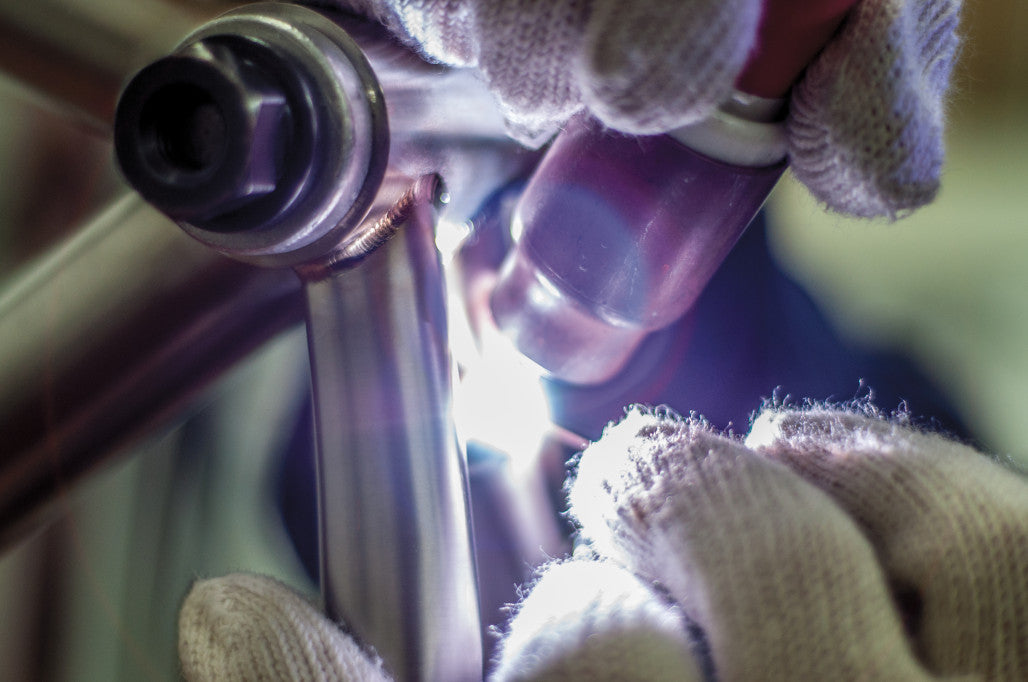Seven Cycles began manufacturing bicycles in January 1997.
In the beginning, Seven's founders looked for a name that would be as timeless, ageless, and positive as the products they create. Ultimately, "Seven" was chosen because it has a generally positive image and meaning and has no specific association with any other object. The idea of seven continents also influenced their thinking, as they had ambitions to sell bicycles all over the world.
The Seven founders and core manufacturing team worked at Marlin Metal Works in Cambridge, Massachusetts, in the early days of the titanium boom. Merlin established itself as a kind of cult brand, and over the decade we worked there, we immersed ourselves in the frame manufacturing techniques as well as the fundamental business practices that would later define our work.
In 1995 and 1996, Merlin was relocated to Tennessee after several acquisitions and relocations, and the core crew of Seven was faced with difficult decisions about what to do next. After some serious discussion, the question was asked, "Does the bike industry need another bike company?" and set them on a new path to produce custom bicycles in a fraction of the time with the greatest output from the riders. This approach was a sales/design/delivery paradigm that did not exist in the industry at the time and was necessary to achieve the mission Seven had set for itself.
In order to achieve the mission Seven set for itself, several big ideas needed to be implemented. First, the company offers both products (bicycles) and services (customization), and the process of getting a Seven is fundamentally different from other companies in that it is a buying experience, and one that focuses on the rider. However, this basic idea is not just as marketing (e.g., Seven - putting the rider first!) ), a manufacturing model was needed to add substance to the experience offered.
One-Piece Production (SPF) is a simple method of making products one at a time. This frame manufacturing method offers many advantages to Seven as a custom builder, to riders with a strong desire for personalization, and to retail partners who carefully manage their inventory. The advantages of one-off production also include the ability to focus on each rider's specific needs for geometry, comfort, handling, options, materials, aesthetics, and long-term versatility, and a significant increase in quality over batch production methods.
Each builder is always the only person responsible for the work that lies ahead of him or her. Typically, two or three builders work on a Seven. This allows each builder to develop and maintain a high level of expertise in their respective fields, such as machining, welding, finishing, and painting.
The practice behind SPF as a practical way to produce precision, high-quality bicycles is called just-in-time manufacturing (JIT). The idea is that the materials needed to produce each bicycle arrive at the factory when they are needed as much as possible. Seven uses advanced predictive modeling and innovative design to streamline their operations, keep costs low, and maintain a high focus on quality. JIT allows Seven to offer custom bicycles made in the U.S. at prices that many bicycle companies charge for stock-sized mass-produced bicycles.
From its inception, and even to this day, riders can misunderstand the implications of customized bicycle manufacturing, or conversely be overwhelmed by the possibilities. For this reason, Seven has developed five elements regarding customization. This will be a simple way to think about what value you get from a custom Seven in a nutshell.

